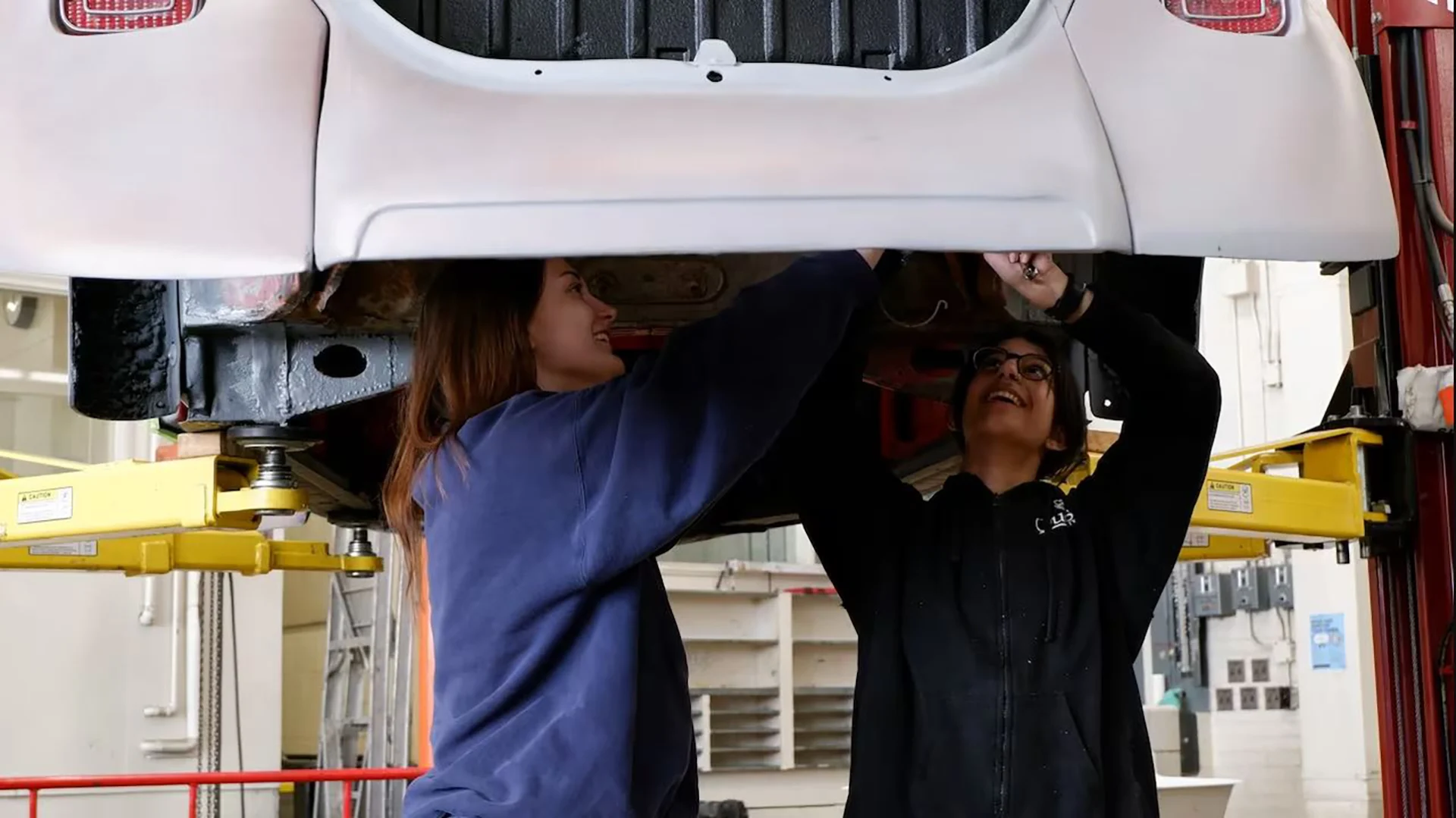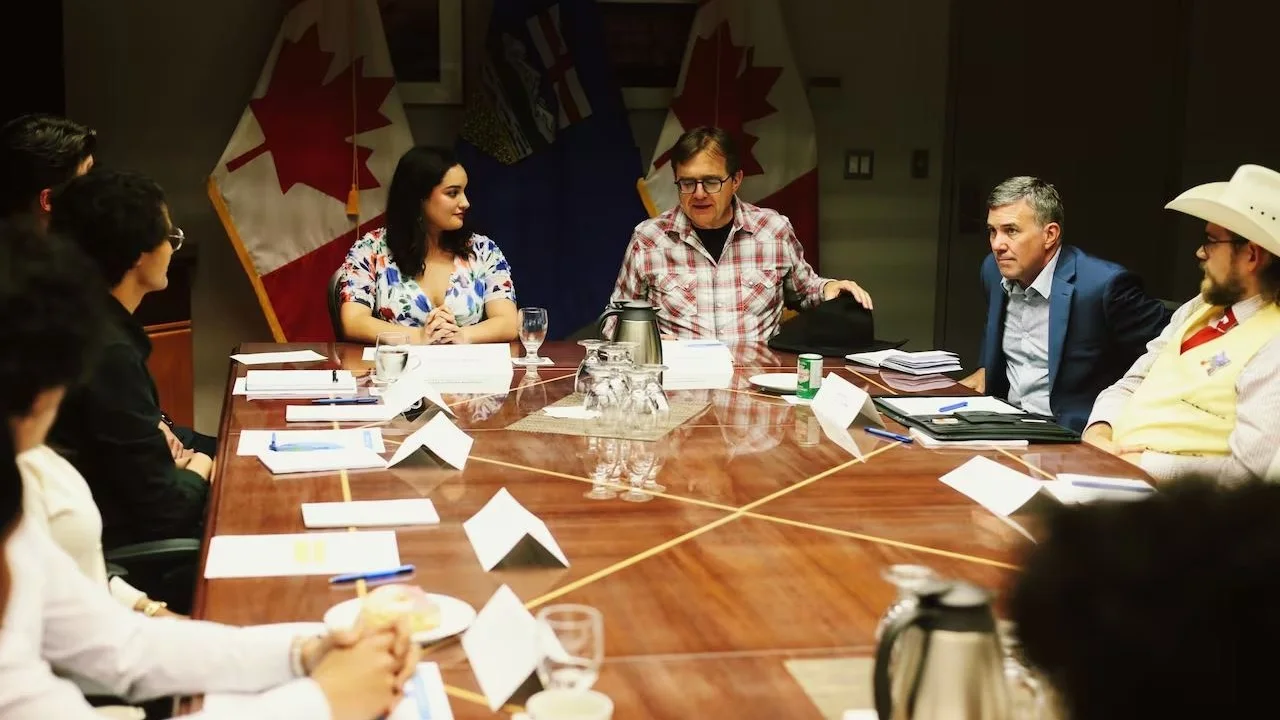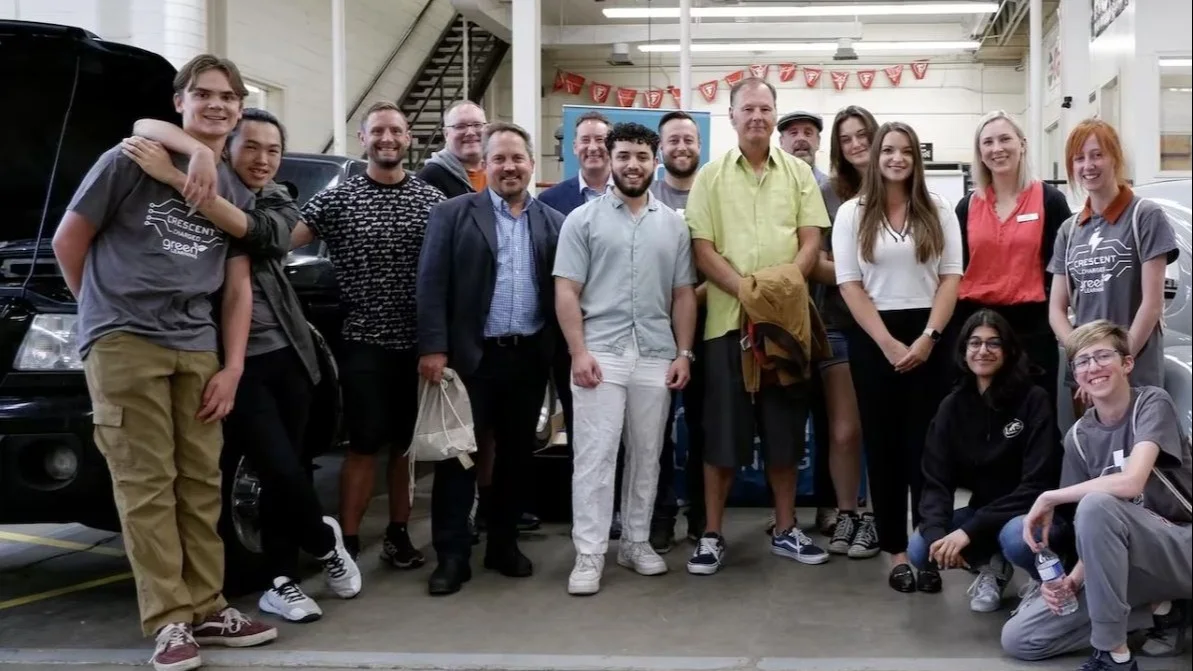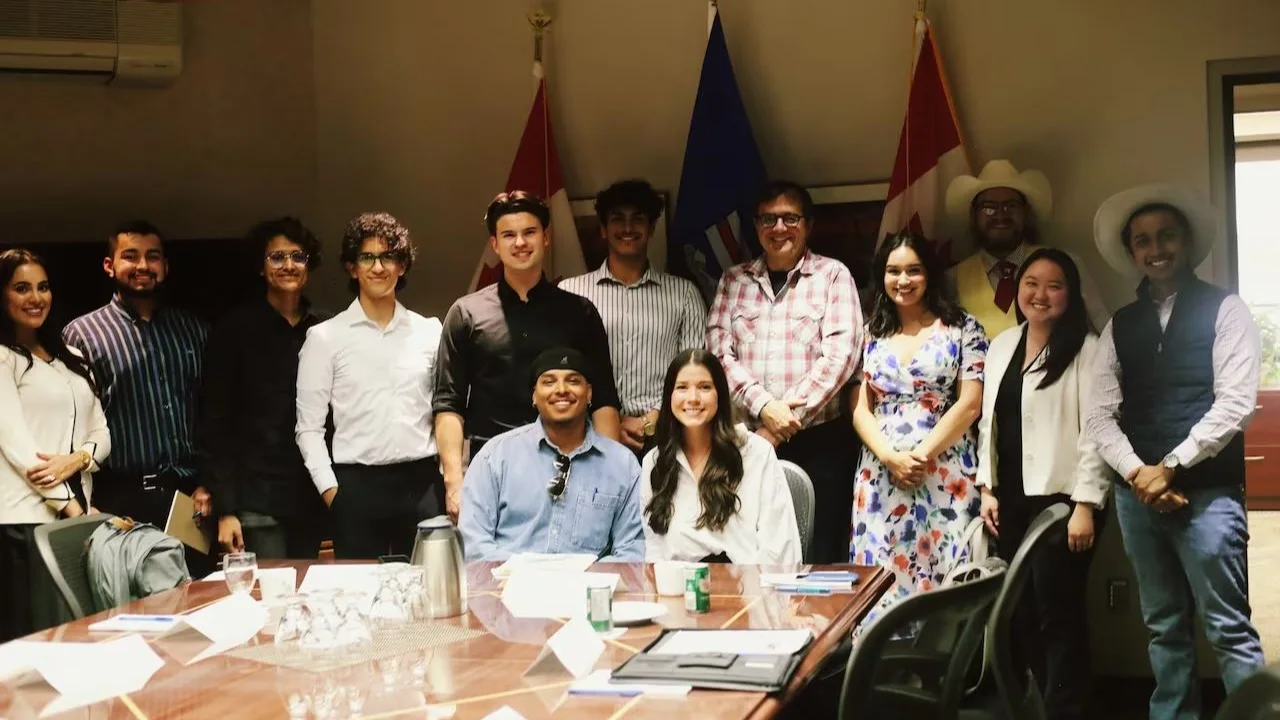
Climate change motivates young people to look for sustainable careers
Climate change has affected "everything" about how Julie Boyce sees her future.
Studying to become a social worker and passionate about working with youth and families, Boyce was focusing on child welfare. Until, she says, she realized how "pressing" the issue of climate change is.
"I realized that without climate, we'd have no future. Without our Earth, we have no future," said the 29-year-old.
"So I completely did a 180, and I rigorously pursued climate change, environmentalism, and sustainability."
Boyce now manages a career training program for Student Energy, working with 18 to 30 year olds looking for an entry level job or internship in the energy sector.
She's one of a growing number of people adapting their careers to the climate change crisis.
READ MORE: Huge growth potential for green jobs during Canada’s energy transition
The University of Calgary says that in the past five years, enrolment in programs related to sustainability has increased by seven per cent. At the same time, programs focusing on traditional energy have seen a small drop of 0.5 per cent.
But it's not just environmentalism that's motivating the shift.
Redirecting aspirations
Dolly Cepeda Montufar says she wanted to pursue chemical engineering since she was little, but her idea of what to do with her degree from the University of Ottawa has shifted.
When studying in the city, she remembers watching as thousands of people took part in a 'Fridays for Future' rally.
The 25-year-old decided to pivot from a focus on cosmetics to climate.
"Being in Ottawa, just seeing the different policies that were being enacted and how much climate change is really impacting us and the extreme weather events that are being caused by Arctic amplification, I realized that actually this is — I mean makeup is fun, but there's enough makeup companies out there."
In addition to climate action, Cepeda Montufar says sustainability "permeates" so many jobs across industries that it's becoming a safer option for young people trying to decide which career path to embark on.

Cepeda Montufar sits beside Jonathan Wilkinson, Canada's minister of natural resources, during a roundtable discussion with young workers in the energy sector. She wants to work on carbon sequestration projects and says there are many companies in Alberta working on sustainability initiatives. (Supplied)
"I've been catching up with all the friends in Calgary and surprisingly everybody has some sort of, maybe it's my echo chamber I will say, but some, like my accounting friends, they're within accounting but also looking at ESG [environment, social and governance]."
She and Boyce were part of a discussion with other young Albertans working in the energy sector, held by Jonathan Wilkinson, the federal minister of natural resources.
He says what he heard from the group included a lot of optimism, as well as concern.
"They want to ensure that we're thinking about building an economy that's going to create opportunity for them and good jobs," Wilkinson told CBC News.
"I think there are enormous opportunities, but it's up to us to be thoughtful in terms of how to seize them, so that it's, there are jobs today, but certainly that there are jobs for these young people tomorrow."
Training for the future
That's an idea already taken to heart at a school in northwest Calgary.
A group of students at Crescent Heights High School recently celebrated the end of their project converting an internal combustion engine into an electric vehicle.
"If this is the direction that lots of cars are going to go, then having that background knowledge is going to be super helpful," said Becca Fremstad, one of the students who worked on the Volkswagen Beetle conversion.

Becca Fremstad (top-right) and other students in the Crescent Heights automotive program also learned about charging stations for electric vehicles through the installation of one on the school site. (Supplied)
Designed by GreenLearning, it's a pilot project executive director Kathy Worobec says they hope to take to more students across the country.
"We have the online simulator tool, and so we're going to be sharing that with schools and school boards across Canada, [and] the ministries of education that do the curriculum, who say what needs to happen in curriculum."
As high school students transition to post-secondary, those institutions are also making efforts to provide education.
The University of Calgary is introducing a new Sustainable Systems Engineering program for fall 2023, just two years after suspending admissions to its bachelor program for oil and gas engineering due to low enrolments.
But while more training is developed, young adults are still faced with uncertainty over climate change that extends past what to do for work.
More than just a career issue
Wilkinson says one of the major roles young people have to play in the energy transition is calling for senior players in business and politics to do more.
"At the end of the day, if we don't succeed in reducing carbon emissions in line with what science tells us — I mean, like this is not a partisan issue. It's not a part of political issue, it's a science issue, and young people are the ones who are going to be left holding the bag," he said.
Cepeda Montufar says for her, living in Edmonton, "fire season" has become a regular reminder of how climate change could impact her future.

Boyce (bottom-right) says the energy transition needs to be "people-centred". While she was glad to see young voices included during Wilkinson's event, Boyce wants to see more done by government to engage rural populations in Alberta on a topic that directly affects them. (Supplied)
She foresees a growing number of climate refugees to Canada as more people are forced from their homes by severe weather events.
That's a reality all too familiar to Boyce, whose family lives in Wabamun Lake. She says their home was in danger during the recent wildfires in Alberta.
"Seeing them go through that, being ready to evacuate at any moment was really hard. It was really difficult to see how close it was to touching my life, my family's life."
And even though she wants to dedicate her life to helping youth and families, climate change has caused her to rethink at least one more aspect of the future she always imagined.
"I used to want to have a family and I don't know if that's something that I can do. I don't know what world I'm passing off to the future generation."
This article, written by Jo Horwood, was originally published by CBC.
Thumbnail image: Initiatives and programs like this electric vehicle conversation at Crescent Heights High School are aimed at keeping young people prepared for a job market that's shifting simultaneously with the energy sector. (Supplied)











